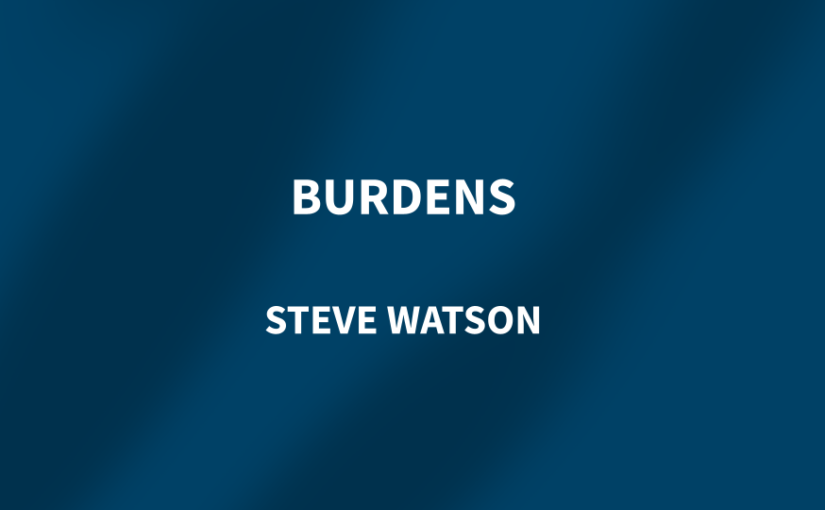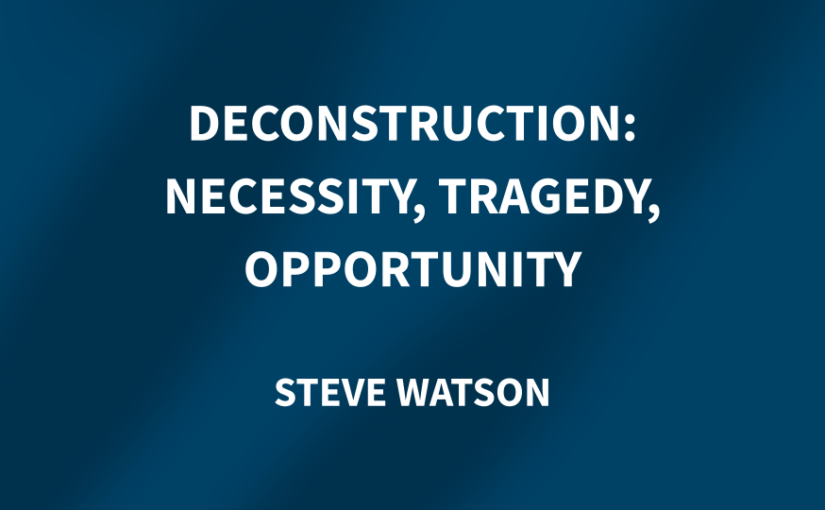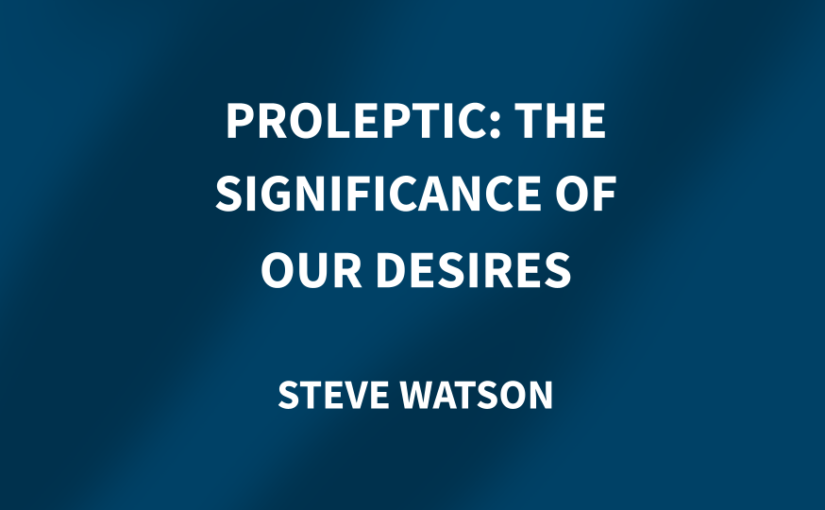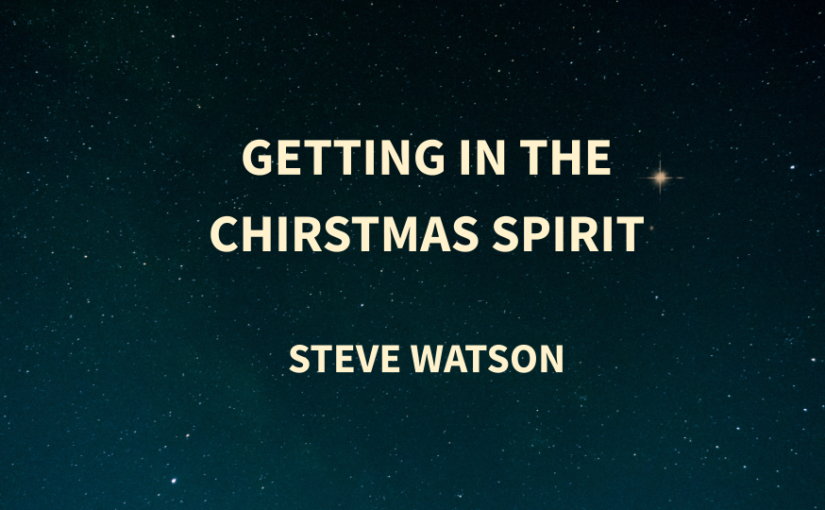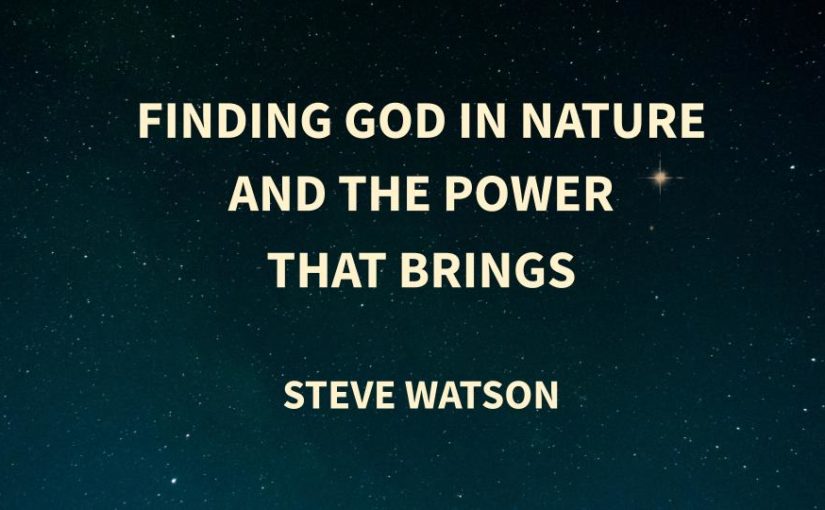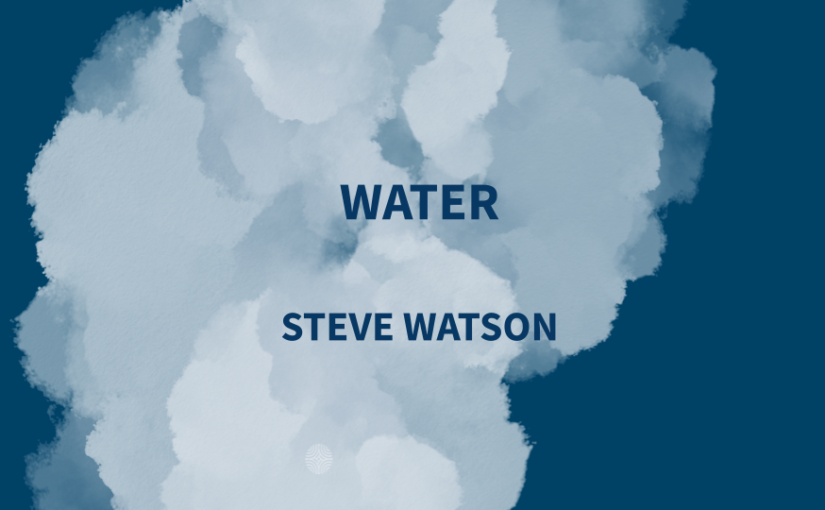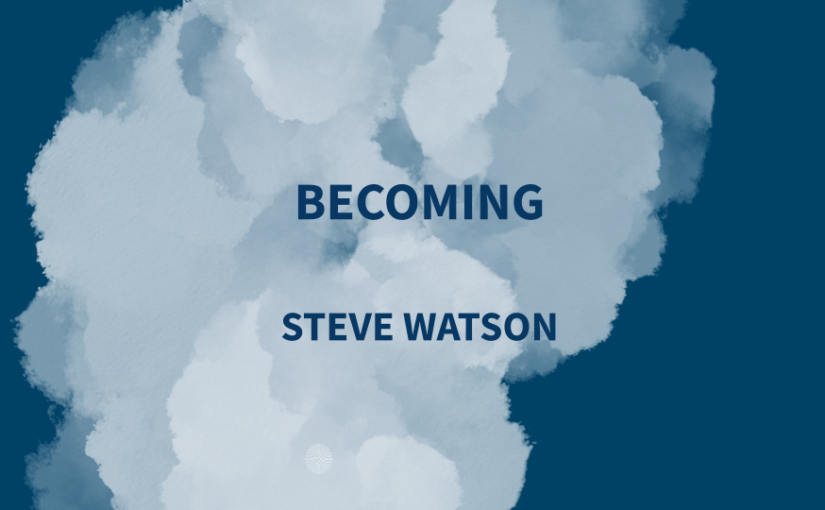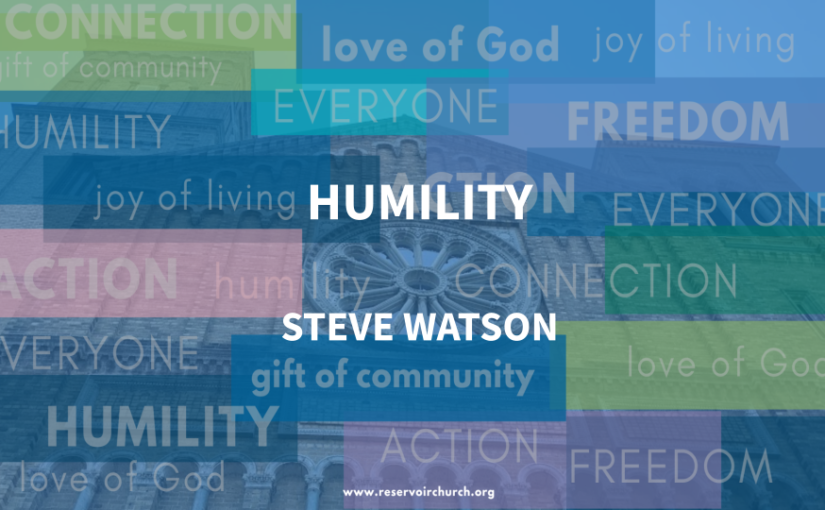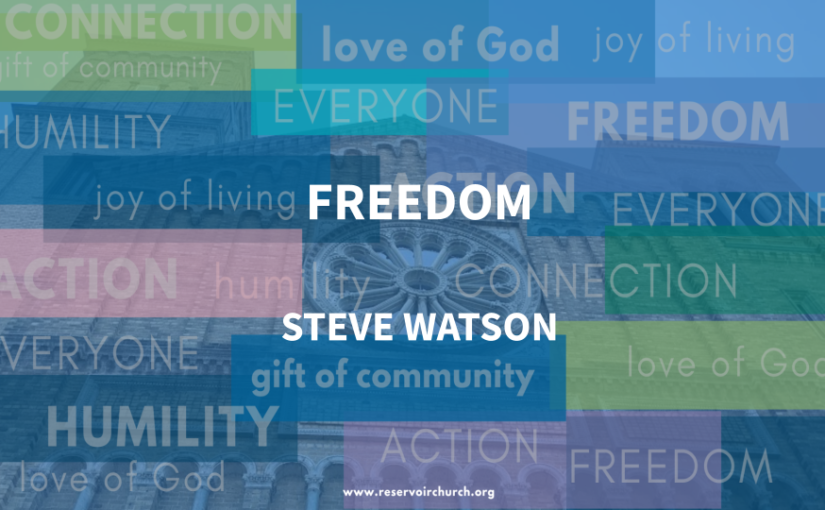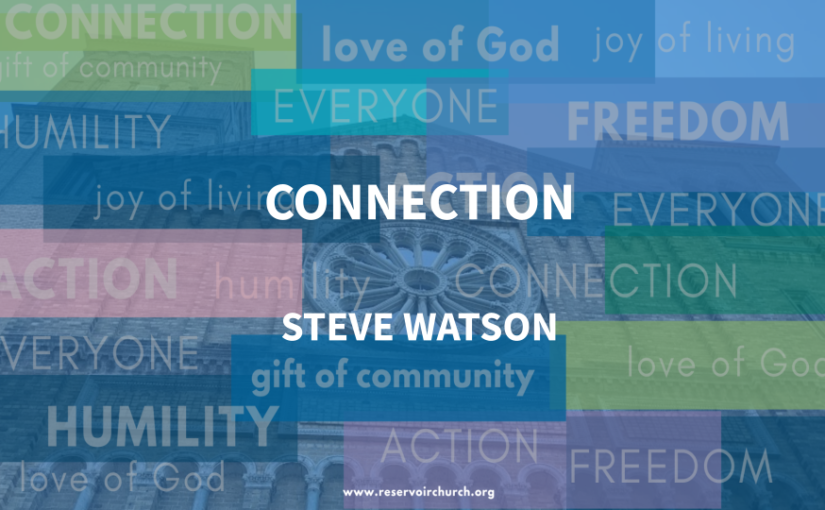Glory, glory, hallelujah…
I start us out by singing today because at least for me, it takes me somewhere. Somewhere less burdened, somewhere more joyful, more free.
I would love for us to go there together, my friends.
We are burdened people, I believe. We are anxious, stressed, weighed down, carrying a lot of troubles. For some of us, it’s more true than others.
Some of us are more prone to stress than others. Some of us more prone to worry or anxiety.
Some of us carry trauma in our bodies. That internalized fear and pain – old or new or some of both – can be a burden. Awareness of others suffering can be a burden. Those of us in the helping professions and those of us who are parents may face this kind of compassion fatigue a lot. But all of us, in our wired up, globalized age know more about more people’s suffering than any of our ancestors did, and that’s a lot to know when most of it we can’t do anything about.
I’ve talked with women of color in my life about what it means to have both your culture and your gender be frequent targets of violence and frequently experiencing inequity and harm, knowing that there’s generations more of this in your backstory. There is growing research on how the effects of trauma can be passed down through generations. That’s a lot of burden too.
We are a burden-bearing people.
I’m not an expert on all this. This is also a sermon, not a treatment course in trauma, anxiety, or other specific forms of burden.
So know that I’m not pretending to have the last word on getting free from our burdens today or anything. But I think there is wisdom, there is invitation in the scriptures, in the faith tradition of Jesus and his ancestors and his followers too, that we also easily forget or have never heard or don’t put into practice very much.
So I’d like to tap that tradition a little today, share a couple of stories and tips around what to do with the burdens we carry, how to maybe pick up a few less and lay down a few more, and find more of that Glory, Glory joy and freedom in our days.
Alright?
I’ve got three scriptures. Here’s the first:
Psalm 55:22 (New Revised Standard Version)
Cast your burden on the Lord,
and he will sustain you;
he will never permit
the righteous to be moved.
I first heard that verse when I sang it. In high school, I joined a community chorus with my dad where we sang the choral dramatization of the life of Elijah the prophet. And in the middle of it, there’s this beautiful setting of this verse.
Cast your burden upon the Lord. It’s beautiful.
How do you do that, though? How do you throw your burden onto God’s back, so God can carry you, strengthen you?
When I first sang this verse, I was both picking up and starting to put down burdens at the same time.
I had experienced secrecy and neglect around some trauma in my life, and that was still buried at the time. I was just starting to become an ambitious and driven person to be able to put a life together for myself, one that I love and am proud of but that 25-30 years later, in my 40s, I had to stop and reevaluate parts of. We’ll come back to that, but this was in some ways a season of accumulating burdens.
And yet, the beginnings of laying down my burdens were happening too.
I became convinced in my teen years that God, the creator of the universe, knew and loved me. That spoke to my lonely self, so that was a laying down of burden.
After I moved out of home, I started to be able to name and understand my trauma story. I got help learning about it, I got curious about what was going on inside me. I was able to see a therapist for a while. And this work was hard but it helped me know more acceptance and love for myself and freedom, helped me let go of some of the shame I carried. So that was a laying down of burdens too.
I started learning how to notice my feelings when they happen and talk to someone about them – basic I know. But I was learning how to pray and learning how to have better friendships than I ever had as a kid. And this was freeing too.
And I realized that I was entering my adult life with a ton of fear of failure – fear of career failure and fear of financial failure too. And the spiritual resources I found in my faith community helped me start to lay that burden down.
All these layers of starting to lay down burdens as I grew up, none of them happened by myself. They all happened in relationships with God and friends.
This laying down of burdens, I think mostly we don’t do it alone. We need partners, people to help us pull stuff off our back and let it go.
I love this old documentary called Strong at the Broken Places. It’s the story of four people who came of age facing immense trauma. And all four of them find enough healing in their broken places, enough recovery in their trauma, that their very weaknesses, healed in part, enable them to help many, many others find their recovery.
One of them, Max Cleland, was profoundly disabled during the Vietnam War, and then faced depression and PTSD after returning home before finding the help he needed to heal and to serve others in public life, even becoming a US Senator. He quotes Hemingway, who wrote:
“The world breaks everyone but afterward many are strong at the broken places.”
And Cleland says that’s his story, and it’s a story he’s seen in others, that with the help of God and friends, we can be strong at the broken places.
We don’t do it alone. The help of God and friends is the key. Life’s too hard to be a solo sport. We all need help with our burdens. None of us can carry them, or even give them to God, alone.
This is one of the reasons this church has community groups – places to know and be known. Grace and I pull together an online group Thursday nights for parents of younger kids. We check in over Zoom, often about our burdens or those of our kids, and pray together. That’s it. Pretty simple. But a place to not be alone in our burdens.
In my Saturday morning Bible study here, we study the Bible but we also each share some way we’ve found life this past week or some way our lives could be better. It’s also a place to not be alone in our burdens.
Because I’m a pastor in this community, I also have friendships and groups outside of this church where I can make my burdens known. Without those circles of friendship, I wouldn’t even notice many of the burdens I’m carrying, and I certainly wouldn’t have the kindness and empathy and prayer and support that helps me not keep carrying them.
So, friends, we don’t cast our burdens unto God all by ourselves. We do it together.
I’ve also mentioned prayer. And I want to say a little more about that. Prayer is a lot of things, but one thing it is is when we offer our burdens and our gratitude to God, and God gives us God’s peace.
I get that description of one kind of prayer from these powerful lines in one of my favorite chapters in the Bible, the fourth chapter in the letter to the Philippians, where it says:
Philippians 4:6-7 (Common English Bible)
6 Don’t be anxious about anything; rather, bring up all of your requests to God in your prayers and petitions, along with giving thanks.
7 Then the peace of God that exceeds all understanding will keep your hearts and minds safe in Christ Jesus.
I share this and pray this for others a lot, that they won’t get stuck with their burdens dominating their mind, but that they can ask God for help and as they do remember there’s so much to be grateful for too. Because that combination of gratitude, perspective, and reaching out to our Mother/Father God for help has brought so many of us profound peace, peace that keeps us safe, peace that keeps us well, peace that goes beyond our understanding.
Last month, I needed help remembering this teaching for myself. I was in a lot of conversations with people who were facing high stakes problems – big, big burdens. And normally it is not hard for me to show up as a pastor and a friend to other people’s pain. I feel sad with them, sad with you, each time this happens, but to be a friend, a support, a help in it is actually fulfilling for me.
But last month, it was getting to me for some reason. I was thinking about other people’s problems at random times of the day, having some of the sadness and stress of other people start to feel like my own, and I was telling my therapist about this, and remembering this way I’ve prayed for burdens, out of this teaching in Philippians.
If I can, I share with God – I say it out loud, or I write it down – here’s something, someone I’m grateful for right now. Gratitude is a great perspective maker – there’s always more than our burden.
And then the burden prayer has four parts.
I picture the burden, and I say I really care about this, God.
And then I say, if I think it’s true, I’ve done what I can. I’ve done my part. Or if I haven’t yet, I say to God, I will do my part. I will do what I can.
Burden releasing is not an excuse for apathy or irresponsibility. We’re called to do something about our burdens and the burdens of the people we love. But we’re not gods either. We can’t do it all.
So: I care. I’ll do my part. Or I’ve done my part.
And then I say to God:
this is too big for me.
And I tell myself, and I tell God what I can’t do, or what I don’t know how to do.
And then I usually stick my hands out, and I say:
I release this to your care, God.
I was telling my therapist about this, and she was like:
do you want to do that now?
And so, in front of my therapist, who does not share the details of my faith at all, I named a person I love whose burden felt so heavy and I prayed my way through this, naming to God:
I care about them.
I have done and I will continue to do my part.
But also, this is bigger than me.
And God, Abba, Mother/Father, I release them to your care.
My therapist affirmed the peace she saw this bringing me, and she stretched me a little too. She said:
Steve, you know sometimes you need to release the people you love not just to God but to themselves.
You have to remember that parts of their stress and problems, you can help with, but parts are for them and not for you. You have the trust that they too will own their healing journey. And so, I’m adding that to my prayers, saying before God, you know, God, that this isn’t mine to keep carrying.
The scriptures after all admonish us:
Bear one another’s burdens and so fulfill the law of Christ.
To bear one another’s burdens is one way we fulfill Jesus’ law:
to love our neighbor as ourselves.
But it says: bear one another’s burdens, help carry them for a while, be a friend, but it does not tell us to hold on to another’s burdens or make them our own.
A lot of the inner work, the spiritual work I’ve been doing in my late 40s has been about learning to live with less driven-ness and less stress, to live more present, more free and joyful, and with more peace.
This giving God my burdens is part of it.
And rest is too. Rest, what the scriptures call sabbath rhythms.
We let go of our burdens with partnership and help.
We let go of our burdens in prayer.
And we let go of our burdens, and pick up fewer in the first place, with rest.
Jesus said:
Matthew 11:28-30 (Common English Bible)
28 “Come to me, all you who are struggling hard and carrying heavy loads, and I will give you rest.
29 Put on my yoke, and learn from me. I’m gentle and humble. And you will find rest for yourselves.
30 My yoke is easy to bear, and my burden is light.”
Jesus reminds us that heavy loads and struggles are never ours to bear alone. We need the help of God and friends. Jesus pictures himself as a leader and a partner to us in our struggles.
Walk with me,
he says.
Learn from me.
And Jesus offers and encourages rest in this.
Jesus was born into a culture and a faith where this was really important, still is really important. As people whose founding stories go back to enslavement, Jews were commanded to practice regular rhythms of rest, worship, joy, and delight.
God said:
don’t forget you once were slaves, and don’t ever let that happen to you again. Be free people.
And part of how they did that was by not working at all one day per week. And using that day for connection, for worship, for rest, and for that which brings joy.
In Hebrew, it’s called shabbat, or sabbath.
And that refers to a weekly rhythm of not working and resting, but also to daily and over the course of years, seasonal times of rest and delight, stuff that helps remember that the earth and the labor of other people is not there for us to always work and exploit. And our own lies are not to always be worked and exploited.
We were made for freedom. We were made for joy. We were made, in part, for rest.
I have the blessing of regular rhythms of this. Even when life is busy, when life feels burdened, I try to practice daily small rhythms of rest. Reading something I enjoy almost every night before I go to sleep, listening to a song I love or taking a five minute stretch walk between meetings, rather than cramming in just a little more email.
But whether or not I keep rhythms of rest throughout my day, I take a day off every week, where I will not work, and I make sure to for at least part of it, spend more time than most days in prayer, and where I get outside for longer because that brings life to me, or where I do something else I love for at least a little, when I can with a person that I love.
Lastly, I’m blessed to be in a job that allows for longer periodic bits of rest. Our staff at church all get four paid weeks of vacation a year. And our pastors are allowed to apply for a paid, three month break – a sabbatical – once every seven years. This kind of thing is really rare in our driven form of capitalism. I feel almost awkward announcing it, but this summer, I’m taking three months off. I’ve been granted a sabbatical.
I’m going to hang out with my kids much more as they start to become adults and leave home. And I’m going to get outside more. And my family got a clergy renewal grant to take a big trip too that we couldn’t afford otherwise.
I’m aware that this is an immense blessing. I feel incredibly lucky, really grateful for this.
I’m aware that for many people, these kind of daily and weekly, and longer, seasonal periods of rest can be much harder to find. For people who don’t get paid time off in their jobs, for parents of young kids, for people just scraping by economically, for lots of us, we wonder: how can we take a break?
And listen, friends, I’d be the last person to ever minimize those struggles. But I will just say, that if we follow Jesus, we do into a tradition that invites and even commands rhythms of rest as part of a flourishing, unburdened life.
We don’t get joy, and we don’t get freedom without it.
So a few ways I’ve known people to be creative with their needs for daily, weekly, and seasonal rest.
I’ve known people who prioritize their sleep hygiene. Like, maybe my waking life has no breathers, but I’m at least going to do what’s in my power to get better sleep. So they do stuff like not have their phones by their bedside, or at least have them off for an hour before bed, and other stuff that we know helps us sleep better.
I’ve known people who make lists of 5-10 things that bring them joy, because life’s hard enough they can forget those things, and when they have an unexpected break – some extra childcare, an easy day at work when they don’t have to push so hard – they let themselves just have joy for a while.
I’ve known people that when they are between jobs find a way to take a month off to just not be a worker for a season, people who ask for and get short medical leaves at work for their mental health, people make deals with their housemates or families they live with to change the rhythm of life in their household for one day a week.
People that take in less social media and less news, since they realize we’re not called to know everything or have an opinion about everything but to be people who do justice, love mercy, and walk humbly – and joyfully and freely – with God. Less exposure, more connection, more action, brings a lot of rest.
You get the idea. We all need daily and weekly and seasonal rest. We’ll never find much joy or much freedom without it.
Friends, I hope you found this little tour through laying down our burdens through help and prayer and rest useful to you.


